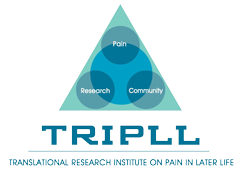An exploration of the effectiveness of a peer-led pain management program (PAP) for nursing home residents with chronic pain and an evaluation of their experiences: A pilot randomized controlled trial
80% of nursing home residents have reported chronic pain, which is often accepted by older adults as part of aging. Peer support models are being used to help individuals manage their chronic conditions and overcome the challenges of limited healthcare resources. The aims of this study were: (i) to examine the effectiveness of a 12 week peer-led pain management program (PAP) for nursing home residents and (ii) to evaluate their experiences. A cluster randomized controlled trial (RCT) was used. The 12 week pain management program was provided for the experimental group. Outcomes were measured at three time points. The participants’ satisfaction and acceptance were evaluated by a semi-structured interview after the program was completed. Pain self-efficacy, pain intensity, pain interference, pain knowledge, and depression levels improved after the completion of the 12 week peer-led PAP. The pain-intensity level reported at week 12 was significantly lower in the experimental group than in the control group. Semi-structured interviews showed that the nursing home residents were satisfied with the pain education that they received. The 12 week peer-led PAP appeared to improve the pain-related and psychological outcome measures in nursing home residents, and the feedback on the peer-led PAP from the nursing home residents was positive.
Tse M, Li Y, Tang SK, et al. An exploration of the effectiveness of a peer-led pain management program (PAP) for nursing home residents with chronic pain and an evaluation of their experiences: A pilot randomized controlled trial. Int J Environ Res Public Health. 2020;17(11):4090. Published 2020 Jun 8. doi:10.3390/ijerph17114090
Click here to read full article
